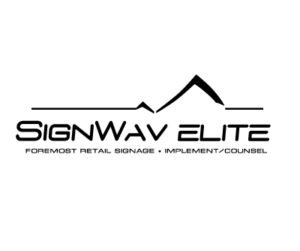Homeowners Associations (HOAs) play a vital role in maintaining the integrity and value of residential communities. Central to this role is financial stewardship, ensuring that dues are properly managed and allocated. However, without proper oversight, financial discrepancies can occur, potentially leading to distrust among members and even legal issues. This is where an HOA audit comes into play. In this comprehensive guide, we’ll delve into the intricacies of auditing your HOA, empowering homeowners with the knowledge and tools needed to ensure transparency, accountability, and financial health within their communities.
Understanding the Purpose of HOA Audits
Before diving into the audit process, it’s essential to grasp why audits are necessary for HOAs. These audits serve multiple purposes, including:
- Financial Transparency: Audits provide a detailed examination of the HOA’s financial records, offering transparency into how funds are managed and allocated.
- Detecting Errors and Fraud: By scrutinizing financial transactions, audits help uncover errors, discrepancies, or potential fraudulent activities.
- Compliance Verification: Audits ensure that the HOA is adhering to local laws, regulations, and its own governing documents regarding financial management.
- Protecting Homeowner Interests: Through audits, homeowners can verify that their dues are being used appropriately and that the HOA is operating in their best interests.
- Improving Financial Health: Identifying areas of improvement through audits enables the HOA to enhance its financial practices, ultimately benefiting the entire community.
Preparing for the Audit
- Review Governing Documents: Familiarize yourself with the HOA’s governing documents, including bylaws, financial policies, and audit requirements. These documents outline the scope and frequency of audits.
- Selecting an Auditor: Choose a reputable and independent auditor with experience in auditing HOAs. Consider obtaining recommendations from other HOAs or consulting local accounting firms.
- Establishing Audit Committee: Form an audit committee comprising knowledgeable homeowners to oversee the audit process, ensuring objectivity and thoroughness.
- Setting Audit Objectives: Clearly define the objectives of the audit, such as verifying financial accuracy, compliance with regulations, and adherence to budgetary guidelines.
- Gathering Documentation: Collect all relevant financial records, including bank statements, invoices, budgets, and previous audit reports, to facilitate the auditing process.
Conducting the Audit
Once preparations are complete, the audit itself can commence. Here’s a step-by-step overview:
- Entrance Conference: At the onset of the audit, hold an entrance conference with the auditor, audit committee, and HOA board members to discuss the audit plan, timeline, and expectations.
- Document Review: The auditor will meticulously examine financial documents, comparing them against bank statements, invoices, and other records to ensure accuracy and completeness.
- Testing Procedures: Through sampling techniques, the auditor will select transactions for further scrutiny to detect any irregularities or discrepancies.
- Interviews and Inquiries: The auditor may conduct interviews with a board member, management, and relevant personnel to gain insights into financial practices and internal controls.
- Analytical Procedures: Utilizing financial analysis tools, the auditor will assess trends, ratios, and variances to identify areas warranting closer examination.
- Finding and Reporting: Upon completing the audit procedures, the auditor will compile their findings into a comprehensive report detailing any issues, recommendations, or areas of concern.
Interpreting Audit Results
After receiving the audit report, homeowners should carefully review its findings and implications. Key considerations include:
- Financial Health Assessment: Evaluate the overall financial health of the HOA based on the audit findings, including liquidity, solvency, and adherence to budgetary constraints.
- Identifying Weaknesses: Identify any weaknesses or deficiencies in financial controls, processes, or record-keeping highlighted in the audit report.
- Addressing Recommendations: Work collaboratively with the HOA board and management to address the auditor’s recommendations and implement corrective actions where necessary.
- Transparency and Communication: Foster transparency and open communication within the community by sharing the audit report and its findings with all homeowners, demonstrating a commitment to accountability and governance.
Conclusion
Auditing your HOA represents a proactive approach aimed at fostering financial transparency, bolstering accountability, and nurturing community well-being. As homeowners delve into comprehending the intricacies of the audit process, meticulously preparing for it, and adeptly deciphering audit outcomes, they assume an integral role in upholding the financial integrity of their HOA. Through concerted collaboration and unwavering diligence, HOAs are poised to flourish as conscientious custodians of their communities’ resources, thereby securing a prosperous future for every resident.



























